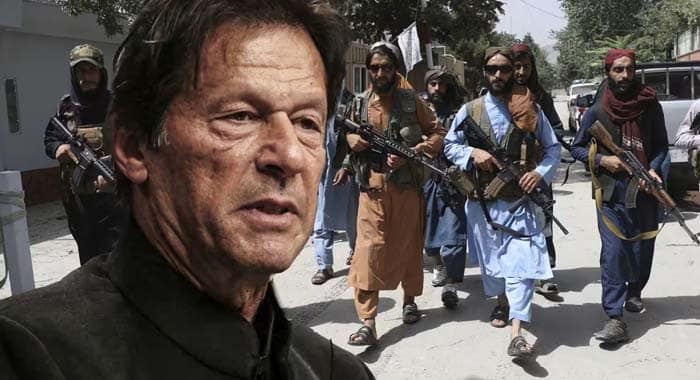Muhammad Haseenullah
As Pakistan buries its soldiers and tightens defenses along a hostile western front, the leadership of Pakistan Tehreek-e-Insaf (PTI) has a familiar solution to the problem of terrorism: talk to the very terrorists who brought the country to its knees. Again.
In a message released from Adiala Jail, PTI’s founder Imran Khan has urged a return to the failed experiment of dialogue with the Taliban, insisting that terrorism cannot be countered without “inclusive consultations” involving tribes, provincial governments, the federal government, and Afghanistan’s rulers — yes, the same rulers sheltering the banned Tehreek-e-Taliban Pakistan (TTP).
Khan’s message, oddly timed with the swearing-in of PTI’s new KP Chief Minister Sohail Afridi, reads less like a national security proposal and more like a political love letter to the Taliban — carefully crafted to rekindle a relationship that helped plunge the country into its current crisis.
“This issue cannot be solved through behind-closed-doors decisions,” Khan said, without a hint of irony; forgetting, perhaps, that his own government quietly negotiated with the TTP behind closed doors, flew them in from Afghanistan, and resettled hardened terrorists into KP’s tribal districts without public or parliamentary approval.
The results of that policy are playing out in real time; bombings, targeted killings, and cross-border raids, while the architects of that disaster now sit behind bars, offering advice no one asked for.
Political Nostalgia for Failed Policy
Khan’s statement, cloaked in calls for “unity” and “political inclusion,” is being widely interpreted as a tone-deaf attempt to maintain relevance — and to keep lines open with militant groups who once viewed PTI as an ally.
Security analysts say his remarks are not just misguided, but dangerous, given that Pakistan is currently fending off a new wave of Taliban-backed aggression along the western border and fresh attacks by TTP-affiliated groups in KP and Balochistan.
“He’s not proposing a new strategy,” said one retired security official, “He’s pitching the exact same failed script that nearly cost Pakistan its internal security.”
Meanwhile, the people of Khyber Pakhtunkhwa; the very province Khan insists must be “consulted”, continue to bear the brunt of terrorism, with security forces stretched thin and public confidence eroding.
Same Playbook, Same Players
Khan also used his message to praise former KP Chief Minister Ali Amin Gandapur for “resigning honorably” and thanked PTI lawmakers for electing Afridi in his place. In political terms, the announcement may help PTI reinforce its grip on KP’s administration; but in the larger context of national security, the party’s refusal to acknowledge its past missteps is a red flag.
The PTI government’s decision to rehabilitate TTP fighters, allow them to re-enter Pakistani soil, and “give peace a chance” — without justice, conditions, or national consensus — is now widely condemned as one of the worst security miscalculations in recent memory.
Yet even from prison, Khan remains committed to the same fantasy، that talking to terrorists is a substitute for defeating them.
The Wrong Message at the Worst Time
At a moment when the nation is under siege, with tensions high on both eastern and western borders, PTI’s messaging feels alarmingly out of sync with reality. While the military continues to carry out operations against TTP hideouts, Khan seems more concerned with offering the group a path back to the table.
His words signal neither remorse nor rethinking, only a nostalgic yearning for the days when PTI and TTP were quietly shaking hands while the nation watched in silence.





